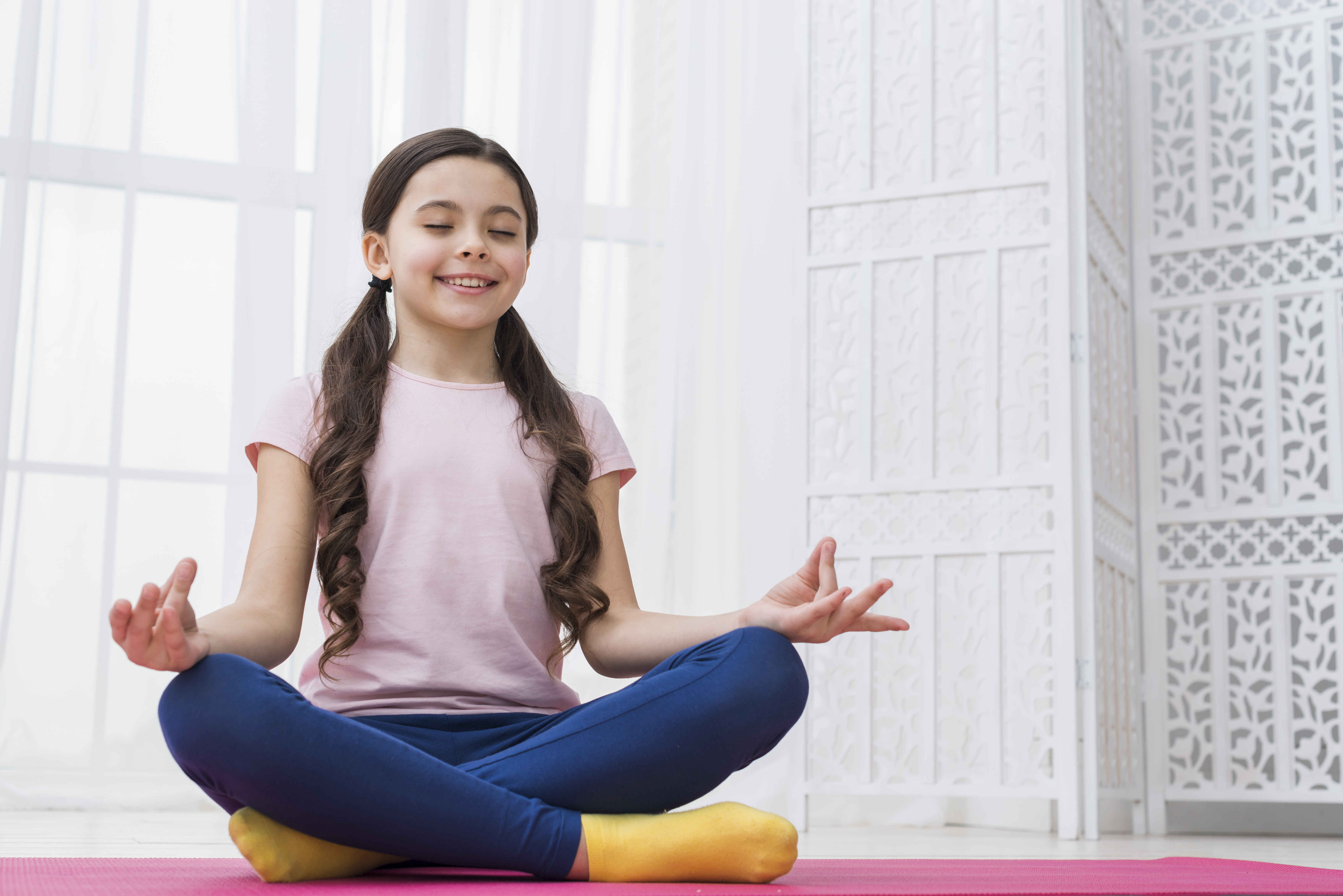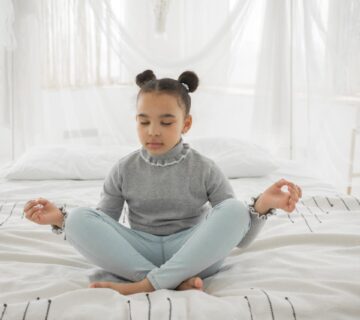The pitter-patter of tiny feet moving gracefully, the soft hum of tranquil breaths—this isn’t your typical yoga class. It’s a gathering of young minds and bodies embracing the wonders of kids yoga. But what makes this ancient practice so transformative for the little ones? Let’s unravel the secrets and delve into the enriching world of kids yoga.
In an age where screens dominate and schedules overflow, kids face new challenges affecting their physical and mental well-being. Amidst this whirlwind, yoga emerges as a beacon of hope, offering many benefits beyond flexibility and strength for children.
The Intriguing World of Kids Yoga
Yoga, a practice that originated centuries ago, has found its way into the lives of children, and for all the right reasons. Beyond the conventional asanas and meditation, kids yoga is a specialized form tailored to suit young minds and bodies’ unique needs. It’s a holistic approach that intertwines movement, mindfulness, and play, making it an extraordinary tool for nurturing the overall development of children.
Understanding the Essence: What Exactly is Kids Yoga?
Kids yoga isn’t about perfecting complex poses or achieving a Zen-like state; it’s about fostering a sense of self-awareness, promoting physical activity, and nurturing emotional intelligence. At its core, it’s a blend of movement, breathing exercises, storytelling, and games—all wrapped in an engaging, child-friendly package.
The Transformative Benefits for Young Practitioners
1. Physical Well-being:
In a world where sedentary habits are rising, kids yoga is a breath of fresh air. Children enhance their flexibility, balance, and coordination through gentle stretches, poses, and movements. These sessions promote a healthy lifestyle by encouraging regular physical activity in a fun and non-competitive environment.
2. Mental Clarity and Focus:
Yoga isn’t just about stretching muscles; it’s about stretching the mind, too. Children learn to navigate their emotions, manage stress, and improve their concentration by practicing mindfulness and breathing exercises. This cultivates a sense of calmness and focus that can positively impact their academic performance and social interactions.
3. Emotional Resilience:
Through storytelling and guided relaxation, kids yoga empowers children to understand and express their emotions healthily. It provides them with tools to cope with anxiety, fear, or anger, fostering emotional resilience from a tender age.
4. Cultivating Confidence and Self-Esteem:
As children master new poses and overcome challenges during yoga sessions, they build confidence in their abilities. The non-judgmental atmosphere of kids yoga classes encourages self-expression, boosting self-esteem and nurturing a positive self-image.
Tailoring Yoga to Suit Young Minds
One of the beauties of kids yoga lies in its adaptability. Sessions are crafted to resonate with different age groups, ensuring that activities are enjoyable and developmentally appropriate.
For toddlers and preschoolers, yoga is a whimsical adventure. Animal poses like Downward Dog become playful imitations, storytelling introduces them to the world of imagination, and simple breathing exercises lay the foundation for mindful practices.
Older children engage in more structured sessions. Yoga games, partner poses, and relaxation techniques cater to their evolving understanding of their bodies and emotions. Asanas are introduced progressively, enhancing flexibility and strength while nurturing mental well-being.
Embracing Yoga Beyond the Mat
The influence of kids yoga doesn’t confine itself to the studio. Its teachings ripple into various facets of a child’s life. Parents, teachers, and caregivers notice the positive changes—be it improved behavior, better sleep patterns, or enhanced communication skills.
Moreover, kids yoga encourages a sense of community. It fosters friendships, empathy, and respect for others, creating a harmonious environment where children learn the value of collaboration and support.
Overcoming Misconceptions: Addressing Concerns
Some parents might hesitate to enroll their children in yoga classes due to misconceptions. Concerns about religious affiliations or the physical demands of yoga often surface. However, kids yoga is secular in nature, focusing on the universal principles of well-being, and classes are tailored to suit varying levels of physical abilities.
The Gift of Yoga for Every Child
In a world brimming with distractions and challenges, the practice of kids yoga emerges as a beacon of hope—a safe space where children can explore, grow, and thrive. Its transformative power extends far beyond the physical realm, nurturing young minds and bodies and laying the foundation for a healthy, balanced life.
As the sun sets on the yoga mat, the lessons learned linger—bringing a sense of tranquility, confidence, and joy that will resonate through the lives of these young practitioners, enriching their journey into adulthood. Kids yoga isn’t just a practice; it’s a gift of health, focus, and boundless possibilities.
Final Thoughts
Kids yoga isn’t merely a trend; it’s a profound investment in the future generation. Its influence goes beyond the physical postures; it’s about shaping resilient, compassionate, and mindful individuals who will carry the essence of this practice into every aspect of their lives.




No comment